
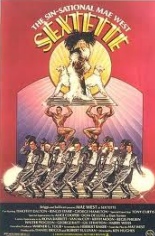 Sextette is the cruelest motion picture I’ve seen, both to its leading lady and to its audience, neither of whom come away unscathed. In retrospect, the entire movie feels like a pre-cursor to Bobcat Goldthwait’s Windy City Heat, in which the victim is a poor, deluded old woman too feeble to understand how foolish she is being made to seem. It’s a massive assault on our collective dignity that could have been avoided if only one person at the time had the balls to speak the plain truth.
Sextette is the cruelest motion picture I’ve seen, both to its leading lady and to its audience, neither of whom come away unscathed. In retrospect, the entire movie feels like a pre-cursor to Bobcat Goldthwait’s Windy City Heat, in which the victim is a poor, deluded old woman too feeble to understand how foolish she is being made to seem. It’s a massive assault on our collective dignity that could have been avoided if only one person at the time had the balls to speak the plain truth.
Based on a play she wrote decades earlier, the legendary Mae West portrays Marlo Manners, the world’s most celebrated movie star, who has famously married every man she slept with. Her latest hubby is a pre-007 Timothy Dalton, who has taken her to a very prestigious hotel to celebrate their honeymoon. Before they can consummate their marriage, the two are constantly interrupted by terrible musical numbers (including one with Alice Cooper!) and a legion of Marlo’s ex-husbands, all of whom are desperate to have her back.
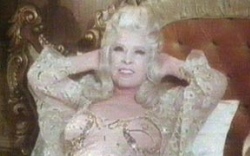 Looking at least two decades older than her 84 years, neither West, her castmates nor the filmmakers ever acknowledge the absurdity of the film’s premise, which only makes it that much more pathetic and sad. It also doesn’t help that the thought of she and Dalton actually fucking is so repellent, the viewer cannot help but get anxious every time they embrace — making the film scarier and more tension-provoking than any horror movie ever made. —Allan Mott
Looking at least two decades older than her 84 years, neither West, her castmates nor the filmmakers ever acknowledge the absurdity of the film’s premise, which only makes it that much more pathetic and sad. It also doesn’t help that the thought of she and Dalton actually fucking is so repellent, the viewer cannot help but get anxious every time they embrace — making the film scarier and more tension-provoking than any horror movie ever made. —Allan Mott

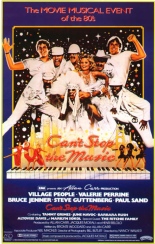
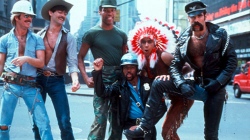
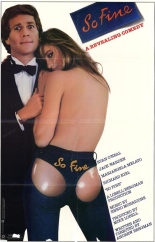
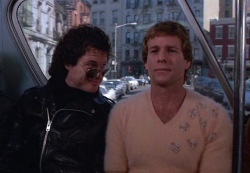 O’Neal plays Bobby Fine, an English professor at a stuffy New England college who is literally kidnapped to work for his father’s (a hilarious Jack Warden) struggling clothing company at the behest of a behemoth loan shark named Big Eddie (Richard Kiel). When Bobby is introduced to Eddie’s hot Italian wife (Lina Wertmüller regular Mariangela Melato), it’s lust at first sight and many amusing complications — including the invention of a revolutionary new fashion style — ensue.
O’Neal plays Bobby Fine, an English professor at a stuffy New England college who is literally kidnapped to work for his father’s (a hilarious Jack Warden) struggling clothing company at the behest of a behemoth loan shark named Big Eddie (Richard Kiel). When Bobby is introduced to Eddie’s hot Italian wife (Lina Wertmüller regular Mariangela Melato), it’s lust at first sight and many amusing complications — including the invention of a revolutionary new fashion style — ensue.
 Enter
Enter 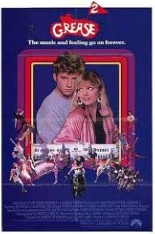
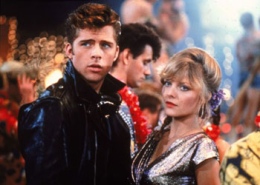 The film itself isn’t that much different than the first one, except in Grease 2, the innocent foreign exchange student is a dude (Caulfield) and the tough-but-sexy greaser is a chick (Pfeiffer). Like his cousin Sandy, Caulfield decides he has to slut it up to get the romantic attention he desires, so he buys a motorcycle and some tight leather clothes. Getting in his way is Zmed, Pfeiffer’s ex-boyfriend and current leader of the T-Birds.
The film itself isn’t that much different than the first one, except in Grease 2, the innocent foreign exchange student is a dude (Caulfield) and the tough-but-sexy greaser is a chick (Pfeiffer). Like his cousin Sandy, Caulfield decides he has to slut it up to get the romantic attention he desires, so he buys a motorcycle and some tight leather clothes. Getting in his way is Zmed, Pfeiffer’s ex-boyfriend and current leader of the T-Birds.